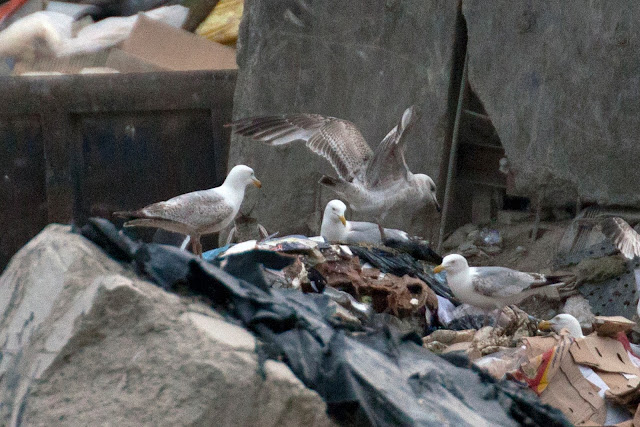The bird to the right and in front of it is interesting also, but bill seems too heavy and has a strange expression to me, so i'll leave it.
A 1st summer Yellow Legged Gull from the same day. quite a caspy about the head and bill at times, but structure suggests YLG
Below another 1st summer YLG from the 4th of June, replaced tertials and coverts are worn, suggesting they wee replaced a while ago, head shape, 'sucked in' cheek, large blunt tipped bill and expression are good.
And finally below, a second summer Yellow leg, this bird is slightly less advanced than other birds of this age seen on the patch this year, another bird of the same age has replaced most of its median coverts with adult grey. this bird still has pink legs, but not really a concern, the conrasty and well marked remaining wing coverts, mantle tone, head shape and advanced bill and red orbital eye ring are pro YLG features.
I have found these recent trips very interesting, and thanks to friends who are into gulls and who give their feedback. I think its good to share these sometimes tricky birds with a fresh eyed gull nerd.
@jarpartridge












